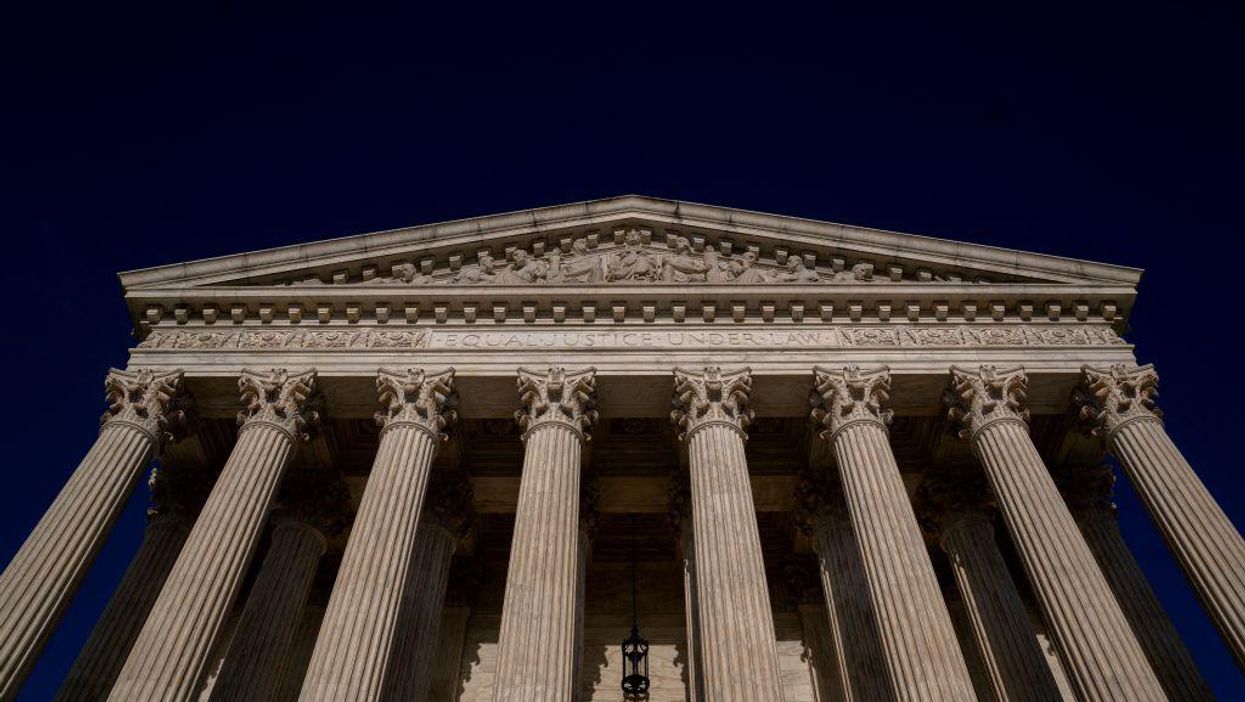
STEFANI REYNOLDS/AFP via Getty Images

The U.S. Supreme Court on Monday declined to block an equity admissions policy at an elite public school in Virginia that is accused of discriminating against Asian-American students.
The court denied a request by a coalition of racial minority parents to block the new admissions policy at Thomas Jefferson High School for Science and Technology in Fairfax County, Va. The school is considered one of the best public high schools in the nation and has a selective admissions program to recruit gifted students.
In 2020, the school overhauled its admissions policy, replacing an entrance exam with a system that weights "experience factors" such as whether applicants are "economically disadvantaged" or if they have attended "historically underrepresented" middle schools in the district. The change was made in response to years of criticism that black and Hispanic students were disproportionately underrepresented in the student body.
However, a group of mostly Asian and immigrant parents called the the Coalition for TJ sued, claiming that the new policy unfairly discriminates against students of Asian descent. A lower court found that after adopting the new admissions criteria, Asian student enrollment significantly decreased from 73% of the student body to 54% in the first year.
The Coalition for TJ argues this was intentional, that the school board wanted to racially balance school admissions by unconstitutionally giving preference to black and Hispanic students and excluding Asian students. Lawyers for the school board argue that the policy is "race neutral" and that it is intended to promote diversity.
A district court blocked the admissions policy in February, ruling that it violates the equal protection rights of Asian-American students. But a federal appeals court later put that ruling on hold as the case works its way through the appeals process. The Coalition for TJ then asked the Supreme Court for an emergency order to reinstate the district court's stay on the admissions policy.
“The Fourth Circuit’s decision to allow TJ’s discriminatory process to continue will cause significant harm to the students who are going through the admissions process for the next school year,” said Pacific Legal Foundation attorney Glenn Roper, who is representing the parents, in a statement earlier this month. “The district court decision found a clear constitutional violation, and we hope that the Supreme Court will agree that this stay should be vacated and the discriminatory process halted while the case proceeds.”
The Supreme Court, however, declined this request in an order that did not explain the decision. Justices Samuel Alito, Clarence Thomas, and Neil Gorsuch noted they would have granted the request.
Should the Fourth Circuit Court of Appeals rule in favor of the school district, the Coalition for TJ will fight their case up to the Supreme Court, group co-founder Asra Nomani told National Review on Monday.
“Coalition for TJ v. Fairfax County School Board is the Brown v. Board of Education for the 21st century, and we will ultimately prevail,” Nomani said.
“This revision to TJ admissions is a crime. We are witness to a tragedy in American history, revisiting blatant racism against an ethnic minority whose only offense was outperforming their white counterparts. Our school board proves that racism is alive and well in our country, but this time, it is coming from the progressive left,” added Harry Jackson, a father of a Thomas Jefferson student and Coalition for TJ co-founder.